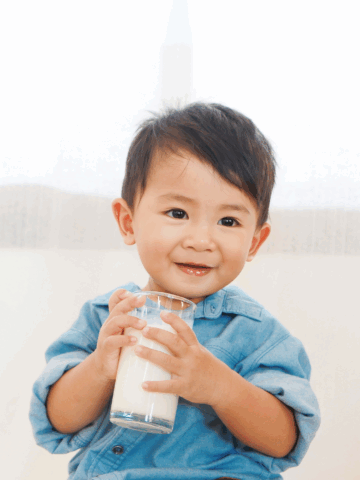By Tracy Alsup, CHOC lactation consultant
Aug. 1 through 7 is World Breastfeeding Week, and this year’s theme centers around the shared responsibility of breastfeeding.
The World Alliance for Breastfeeding Action (WABA) has selected a campaign for 2021 to “build back better” after the COVID-19 pandemic by creating a warm chain of support for breastfeeding. This warm chain emphasizes the importance of each community member’s role in supporting a mother during her breastfeeding journey.
Each link in the warm chain represents an essential support person who provides consistent messages to protect and promote breastfeeding for 1,000 days – from conception until the child reaches 2 years of age. This positive influence from each community member, or link in the chain, can be achieved by providing evidence-based information, referring parents and babies for breastfeeding support and empowering people to achieve their breastfeeding goals.
How can you support a breastfeeding parent?
- Partners can seek education and help develop breastfeeding goals
- Family members can share domestic tasks and care for older children
- Birth hospitals can assure practices are in alignment with supporting breastfeeding
- Healthcare providers can educate and emphasize the importance of breastfeeding for nourishing infants and refer to lactation consultants as needed
- Dietitians can review recommendations of breastfeeding exclusively for 6 months and beyond
- Community members can share evidence-based information about breastfeeding on social media and participate in events to support and protect breastfeeding.
- Local businesses should establish breastfeeding friendly spaces and empower mothers to manage continued breastfeeding when returning to work.
During the past year, protecting the health of the public has been at the forefront of our minds. Breastfeeding is a health choice that can significantly protect the health and wellbeing of communities worldwide. Human milk not only provides optimal nutrition for an infant, it is a free resource with no waste, making it the most economical and environmentally responsible way to nourish an infant. Human milk is amazing in that it changes to meet the growing needs of babies and provides immune protection to prevent illness.
Additionally, research shows that babies who breastfeed have a lower risk of several health conditions:
- obesity
- diabetes
- ear infections and pneumonia
- allergic disease, including asthma
Breastfeeding parents also see benefits, including a reduction in risk of developing diabetes and certain cancers.
Get more expert health advice delivered to your inbox monthly by subscribing to the KidsHealth newsletter here.
Learn more about CHOC’s Clinical Nutrition Program
At CHOC, we specialize in providing a full continuum of pediatric nutrition services, including inpatient and outpatient services, depending on our patients’ needs.





